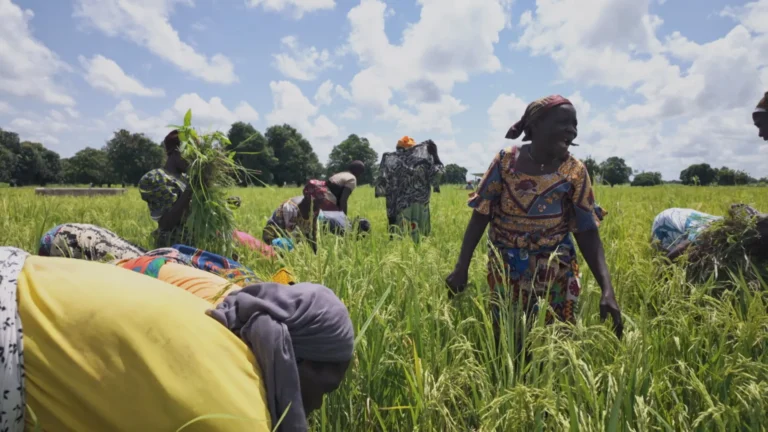Guinea releases provisional electoral roll, revealing youth surge and data irregularities

Conakry, Guinea – The Guinean Ministry of Territorial Administration and Decentralisation unveiled provisional statistics for the National Register of Natural Persons (RNPP) and the biometric electoral roll on Saturday, July 19.
The presentation took place in a Conakry hotel, attended by political figures, diplomats, civil society members, and journalists.
Djenabou Touré Camara, the National Director of Political Affairs and Electoral Administration, presented detailed figures on voter registration ahead of the country’s upcoming electoral processes.
“A total of 6,748,923 voters have been registered,” she stated. “Of these, 48.2% are men and 51.8% are women. The 36-60 age group constitutes the largest proportion of registered voters at 33.3%, followed by those aged 18-25 at 31.7%, and the 26-35 age bracket at 28.2% — indicating a strong turnout from young adults.”
Touré Camara also highlighted regional disparities: “Conakry recorded the highest number of registered voters with 1,537,426, closely followed by Kankan with 1,515,741, and Kindia with 881,011. Diaspora registration amounted to 124,031 voters — 1.8% of the total — with a male dominance of 65.4%.”
She expressed concern over the integrity of the data, noting that the system flagged 119,550 suspected duplicate registrations, 111,379 of which were confirmed.
Additionally, 21,610 cases involved incomplete data entries, requiring further attention to ensure the reliability of the voter base.
Regarding voting infrastructure, she added: “There are currently 26,757 voting centers nationwide, distributed across all communes, prefectures, and regions. Kankan leads with 5,273 centers, followed by N’Zérékoré with 4,447, and Kindia with 3,747.
This reflects efforts to ensure accessibility in high-density areas, particularly where natural obstacles and dispersed habitats pose logistical challenges.”
Abdoulaye Diakité, a representative from the PN-RAVEC program, provided further insight into the RNPP.
“The total population registered in the national database stands at 8,979,923, of which 48.4% are male and 51.6% female.
Of these, 8,840,841 are eligible voters within the country, making up 98.45% of the electorate. Abroad, 139,082 voters are registered, with 64.3% men and 35.7% women, accounting for 1.55% of the total electorate,” he said.
The data release marks a critical step in Guinea’s electoral process as the country moves toward organizing transparent and inclusive Electric.



